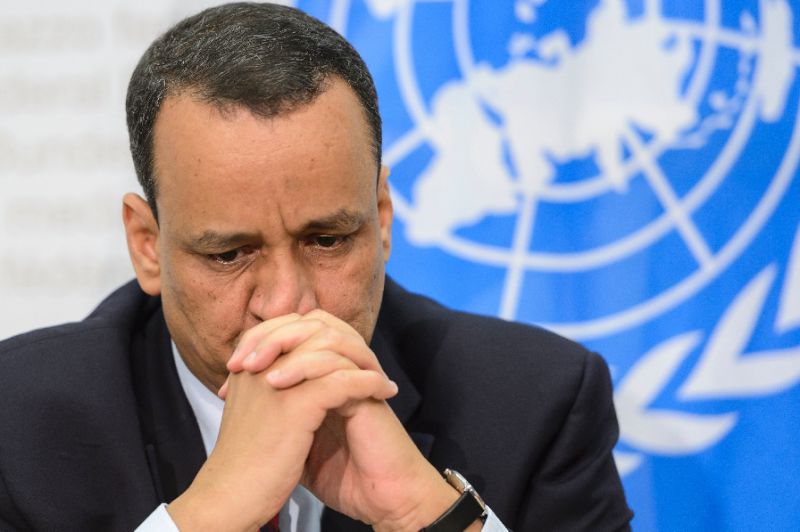Aden- Yemeni State Minister for the Implementation the Outcomes of the National Dialogue, Yaser Alroaini, said that Houthi armed militia must begin withdrawing from Yemeni governmental institutions, which are overrun by Houthi militants. Minister Alroaini requested that Houthis relinquish all weaponry prior to implementing ceasefire next Sunday.
In an interview with Asharq Al-Awsat newspaper, Alroaini confirmed that negotiations are conducted in direct reference to the U.N. Security Council resolution, which should be met with comprehensive implementation.
Stressing on the dangers posed on the Yemeni community and neighboring countries, Alroani brought up the distressing necessity to unarm all militias, so that Yemen’s sovereignty remains intact.
Alroani stated that military field pressure is what forced militias to consider border ceasefire and participate in upcoming national talks. Arm’s cargoes are still being confiscated on their route to Houthis, which proves the militias’ corrupt intentions.
Alroani stressed that Houthis remain a constituent to the Yemeni community; however, only when they abandon arms.
When asked about the Yemeni legitimacy government delegation arriving to Kuwait for ceasefire preparations and about the entailed measures taken by the legitimacy government, Alroani confirmed that the legitimate administration had responded with notable positivity to the U.N. special envoy Ismail Ould Cheikh Ahmed proposal on ceasefire.
He told Asharq Al-Awsat newspaper that the pro-legitimacy delegation has accepted Ahmed’s suggestion on establishing an atmosphere which encourages conducting deliberations in Kuwait.
The Yemeni legitimate government has officially embarked on ceasefire set for April 10, based on the U.N. envoy’s request, which represents a preliminary cessation of hostilities.
However, on the other hand, endorsing declarations on future peace talks were not made by the insurgency, nor were trust-building actions provided, Alroani added.
Trust-building actions were a set of pointers agreed on at the second Geneva peace talks, which will guarantee the insurgency’s good intentions for establishing peace in the war-torn country.
Regardless, the pro-legitimacy administration is bent on guarding both peace and Yemeni citizens, in addition to its discretion that the course towards a solution is political, which is the adopted approach for resolving the Yemeni crisis according to the U.N. resolution 2216, Alroani said.
Concerning attending a political solution in Kuwait, it is regrettable that the insurgent militias have not issued any statements; it seems that they are still fixed on their insurgency. Despite all the aforesaid, ceasefire will be implemented on the date decided by the Yemeni President, and the governmental delegation will openly and unconditionally attend the talks, Alroani added.
The Yemeni government mission will attend negotiations despite that trust-building actions should have been provided by Houthi and pro-Saleh militants (supporters of ousted Yemeni president Ali Abdullah Saleh ) prior to engaging in any negotiations.
